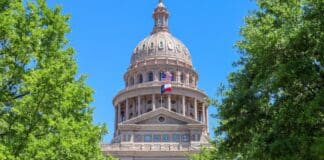Churches and synagogues across the United States are tightening security after a sharp rise in faith-based violence. From school shootings to targeted threats, Christian and Jewish communities are investing in training, volunteer security teams, and protective infrastructure to safeguard worshippers.
The August 27 shooting at Annunciation Catholic School in Minneapolis served as a wake-up call. A transgender-identifying attacker targeted the school with weapons scrawled with phrases such as “Where is your God” and “Israel must fall.” Investigators are treating the assault as anti-religious domestic terrorism. The Family Research Council said churches nationwide are responding by forming trained volunteer teams to provide security during services.
Catholic and evangelical congregations are expanding long-standing safety programs. The Archdiocese of New York has conducted active-shooter seminars for years and stations armed, licensed volunteers as safety ushers at Mass. Victory Church in Ohio trains greeters and ushers in entry control, de-escalation, and medical response. At CrossPointe Community Church in Michigan, a church security member stopped a potential mass shooting when an attacker was disabled outside the building.
Jewish communities face even greater levels of threat. The FBI reported that nearly 70 percent of religion-based hate crimes in 2024 targeted Jews. In response, Jewish organizations now spend an estimated $765 million annually on security. After the October 7, 2023 Hamas attacks, threats against Jewish institutions in the U.S. spiked. Recent violence included the murder of two Israeli embassy staffers outside the Capital Jewish Museum in Washington, D.C. and the killing of pro-Israel demonstrators.
Eric Fingerhut, president of the Jewish Federation of North America, has called on Congress and federal agencies to provide additional funding and intelligence sharing to help secure vulnerable congregations. He emphasized that faith communities cannot carry this burden alone.
For Christians and Jews alike, the push for greater security reflects a sobering reality: houses of worship have become targets. Volunteer security teams, coordination with law enforcement, and federal support are now seen as essential to ensuring that churches and synagogues remain safe places of prayer, education, and community life.





